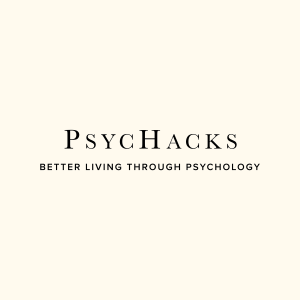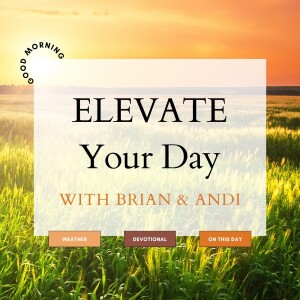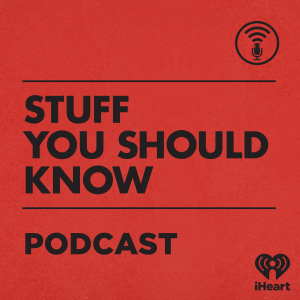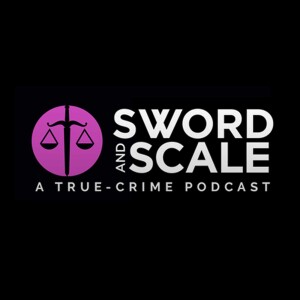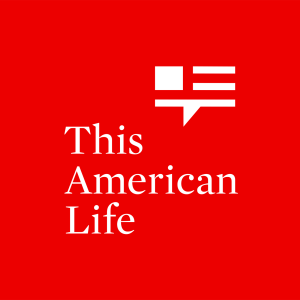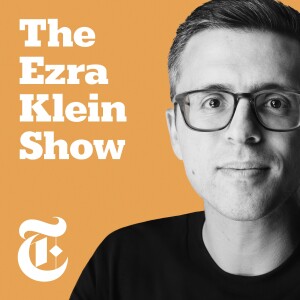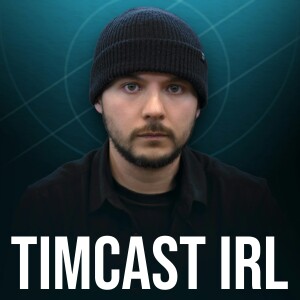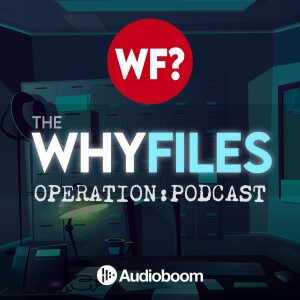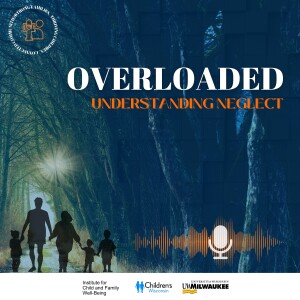

Unlocking the Power of Lived Experience: Ambassadors, Intersectional Professionals, and Parent Leaders with Sixto Cancel, Anthony Barrows, and Bryn Fortune
Today’s episode included the following speakers (in the order they appear):
Host: Luke Waldo
Experts:
- CJ Suitt – MC for Wicked Problems Institute Convening
- Sixto Cancel - Think of Us
- Anthony Barrows – Network of Intersectional Professionals
- Bryn Fortune - Fortune Consulting & Nurture Connection Family Network Collaborative
:06-:18 - Opening Clip – Anthony Barrows -– “And for all of you who are really interested in thinking about ‘how do we bring lived experience into our work, my guess is that we are probably already there, and maybe not raising our hands to self-disclose for lots of reasons.”
00:22-2:59 – Luke Waldo – Opening and Introduction to Wicked Problems Institute national convening and the episode’s three speakers.
2:59- CJ Suitt – Introduction of Sixto Cancel and Think of Us.
3:30-25:20 – Sixto Cancel – Opening acknowledgement of the audience and the work being done to elevate lived experience.
- Sixto Cancel’s Slide Deck – Wicked Problems Institute convening
Sixto shares why he started Think of Us as a college student when he realized that he wanted young people to have more control over their child welfare cases than he did as a foster youth who could have lived with family members.
What Think of Us does. Direct practice through Resource Navigators. Research.
Proximate Policy. Sixto provides a powerful example of how Think of Us and young people with lived expertise influenced policy change around kinship care.
He talks about how they reimagined their role and the process away from just telling their stories and providing recommendations to becoming part of the prioritization and decision-making processes.
- National Convening on Kinship Care – Children’s Bureau
What does it mean to be an Ambassador?
Going beyond traditional diversity.
How is it that you take your lens while also connecting with the young people that are living it today?
Great story about how the Ambassador’s work. Partnered with an agency, Unicorn Solutions, and asked “What can this federal agency do? And what can it not do?”
- Unicorn Solutions
You have to have resource navigation for the ambassadors.
Crowdsourcing. Surveyed thousands of people, themed the responses, created long- and short-form documents sharing the themes, and then compared with Congressional Coalition on Adoption Institute for Foster Club and other leaders’ crowdsourcing and research. “This kind of work matters and will pay off…”
- Congressional Coalition on Adoption Institute
- Foster Club
All this prep work allows for the Ambassadors to identify policy and strategy priorities based on what is possible.
Solid process description starting with game night, relationship building, then trust building.
Sixto finishes with a Michelle Alexander quote that is powerful about family separation.
Follows it with Bryan Stevenson and the importance of proximity. “How do we integrate rather than engage?”
Goal of Think of Us is to serve as an R&D center that shares its lessons learned to be scaled.
25:21-25:31 – Takkeem Morgan - “What would you like to see replicated?”
25:32-27:55 - Sixto - Integration instead of engagement.
27:56-28:15 - Luke – Introduction of Anthony Barrows.
28:16-28:28 - CJ asks about Intersectional Professionals.
28:29-53:00– Anthony Barrows - How the world experiences us based on our identities can shape how we engage with the world.
- Anthony Barrow’s Slide Deck – Wicked Problems Institute convening
- Who are Intersectional Professionals? - Anthony Barrows
Anthony’s introduction to himself and his work.
“I’ve been on the inside of these systems. I’ve seen how they can positively transform people’s lives when they work and chew up and spit out people when they don’t work.”
How do we make key systems deliver better for individuals?
Case Study - Strong example of the disconnect between the content experts from the context experts in San Francisco dropout study. Interesting content regarding social connectedness.
- Project Evident
- Ideas42
We asked the people closest to the problem. They identified different reasons for their academic challenges compared to the professionals’ reasons.
How is Lived Experience used in our work today? Who has control of the outcomes?
- Organizationally-Bound
- Research-Driven
- Design-Focused
- Advocacy-Oriented
Anthony is going to give a different view on how Lived Experience can be used. He provides the Venn diagram of the Intersectional Professional.
- People with lived experience of a system
- People doing work, research or advocacy in a system
- People with professional and/or academic training relevant to a system
Why does it matter? “I believe that intersectional professionals should be leading systems change. As dual experts, insiders with outsider experience.”
“We are probably already in your organization, but may not be raising our hands to let you know.”
Why did we decide to do this work? “This work can be isolating… so well-being is very important.” Five values that guide the work.
- Liberation
- Autonomy
- Creativity
- Excellence
- Solidarity
Summarizing his paper, The Experts by Experience.
- The Experts by Experience
Process.
Three Takeaways.
Best practices.
How to implement this model.
5 Integration Takeaways.
- Community knowledge must be treated as its own form of valuable expertise
- Effective collaboration requires intentional investment of resources
- Organizational leadership is a prerequisite for successful collaboration
- People engaged in design should represent intra-community diversity
- Create infrastructure and explicit roles that enable meaningful power-sharing
The Peer Health Exchange case study.
- Peer Health Exchange
53:01-53:25 - Luke - How might we more effectively support those folks, especially early in that kind of process or transition?
53:26-54:56 - Anthony - Send them to the Network of Intersectional Professionals. Build supportive cohorts of more intersectional professionals.
54:57-55:17 - Luke – Introduction of Bryn Fortune.
55:18-56:09 - CJ – Introduction to Bryn.
56:10-1:11:38 – Bryn Fortune – Lived experience as a mother of a child with special needs who had 85 surgeries and grew up 40 years ago inside a Children’s Hospital in Detroit. While she had privilege, many of the people she met there did not, so she used her lived experience and what she saw others experience to advocate for change with the hospital leadership.
- Bryn Fortune’s Slide Deck – Wicked Problems Institute convening
“Six degrees of separation of privilege” speaks to how lived experience brings a needed perspective that system leaders often don’t get to understand gaps.
Working in Alaska currently because the community has the highest child welfare referral rate in the country from their Head Start and early childhood programs.
How this model was developed.
- Sherry Arnstein
- A Ladder of Citizen Participation – Sherry Arnstein
- Spectrum of Community Engagement to Ownership – Facilitating Power - Rosa Gonzalez
- Who are Intersectional Professionals? - Anthony Barrows
A flavor of the What the model does.
Redesigning structures.
Pregnancy to 1000 days.
Working with 6 diverse populations and regions in the country to learn from.
Identifying Intersectional Professionals who were working with the distinct populations.
Bryn’s description of her program, how it was informed, and how it was implemented.
- Reach Out and Read
- Living Room Language
“What we learned about equity is that 4 out of the 6 communities didn’t know what it meant.”
Bryn’s comments about relationships and the value of Parent Partners was powerful as she states that “there is a lot of mistrust with our systems for many good reasons”.
Steering Committee made up of Lived Experience experts that are now working with Harvard researchers.
Steering Committee members bring their own Lived Experience, and they also represent their communities in a way that they are speaking to what would help the collective behind them.
Historically, well-intentioned professionals have often treated this work tokenistically.
“This is all very adaptable…” Lived experience changes over time and we need to honor those changes.
1:11:39-1:13:42 - Luke – 3 Key Takeaways
- Diversity matters. As Sixto and Bryn both shared from their work, racial, gender, sexual orientation, and age diversity is critical to consider when working with lived experience partners. Equally important is their diversity of experience as someone who has been separated from their parents will have a very different experience with child welfare than a foster parent, even if they have worked with the same system or workers.
- Any one of those experiences can’t encapsulate the 360 degree life that we’ve lived. As Anthony shared, someone who has experience in the child welfare system is not defined by that experience, certainly not alone. Each person has a rich history, yes, often informed by their experiences with systems like child welfare, public schools and housing, and also by their experiences with joy, family, and triumph. Let’s honor and learn from all those experiences, from the whole person that sits before us.
- So, how should we bring lived experience into our work? I share Anthony’s guess that Intersectional Professionals are already there, but may not be raising their hands to self-disclose for lots of reasons. So how might we develop the culture and community within our organizations to support and empower those with lived experience much like the Network of Intersectional Professionals so that they may bring their whole selves safely and confidently into their work? How might we invest in lived experience through intentional processes, roles, and support systems like the Family Network Collaborative model and its Steering Committee or the Ambassador model that Sixto described? How might we move away from the transactional approaches of yesterday and towards the foundation, capacity and equity-building approaches that our experts shared today?
1:14:00-1:15:53 - Luke – Closing Credits
Join the conversation and connect with us!
- Visit our podcast page on our ICFW website to learn more about the experts you hear in this series.
- Subscribe, rate our show and leave feedback in the comments section.
- Sign up for our Strong Families, Thriving Children, Connected Communities initiative and our quarterly newsletter.
- Follow the Institute for Child and Family Well-being on Facebook, Instagram and LinkedIn.
More Episodes
All Episodes>>Create Your Podcast In Minutes
- Full-featured podcast site
- Unlimited storage and bandwidth
- Comprehensive podcast stats
- Distribute to Apple Podcasts, Spotify, and more
- Make money with your podcast

